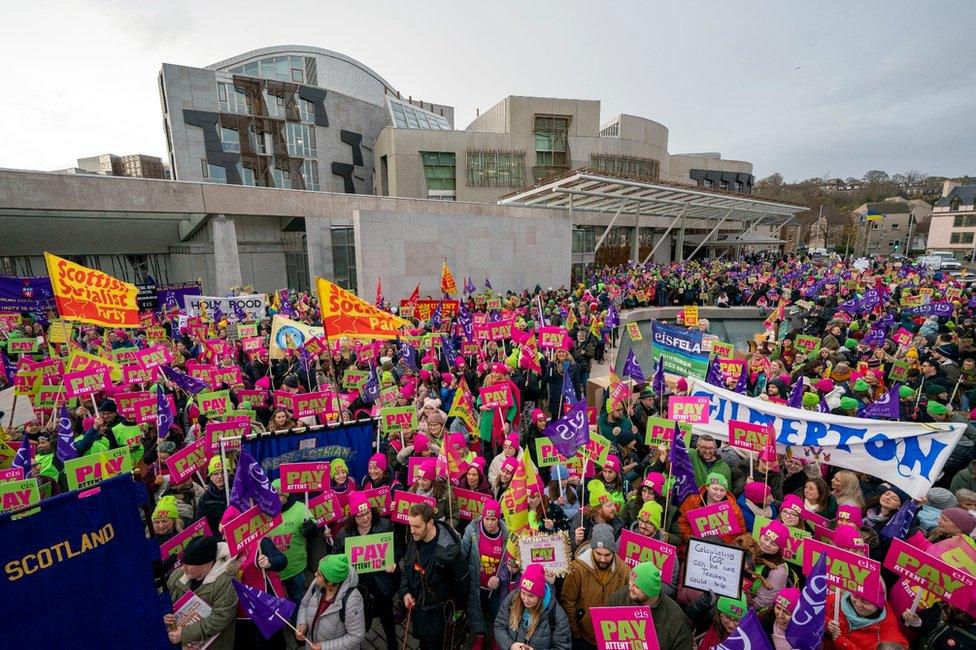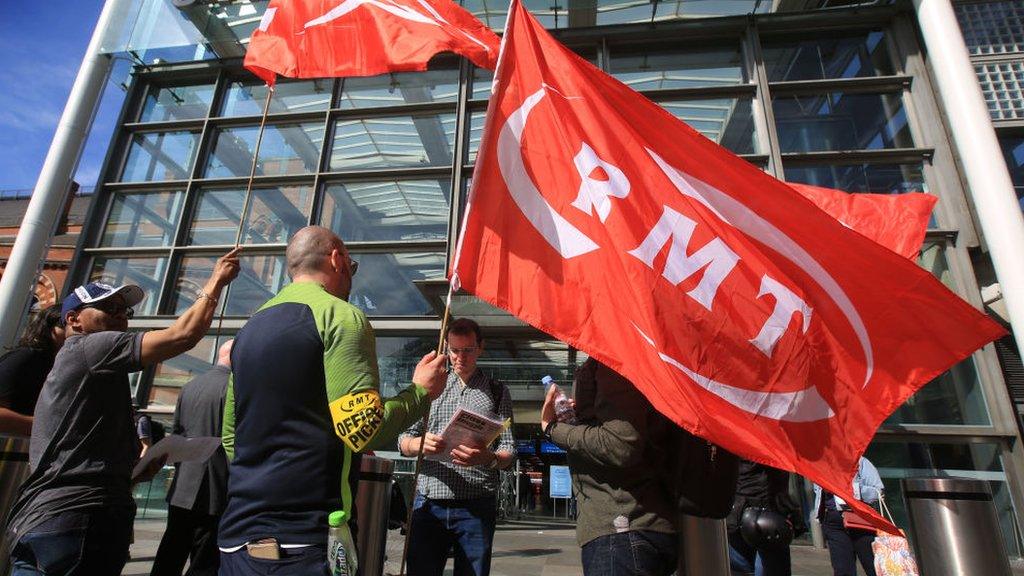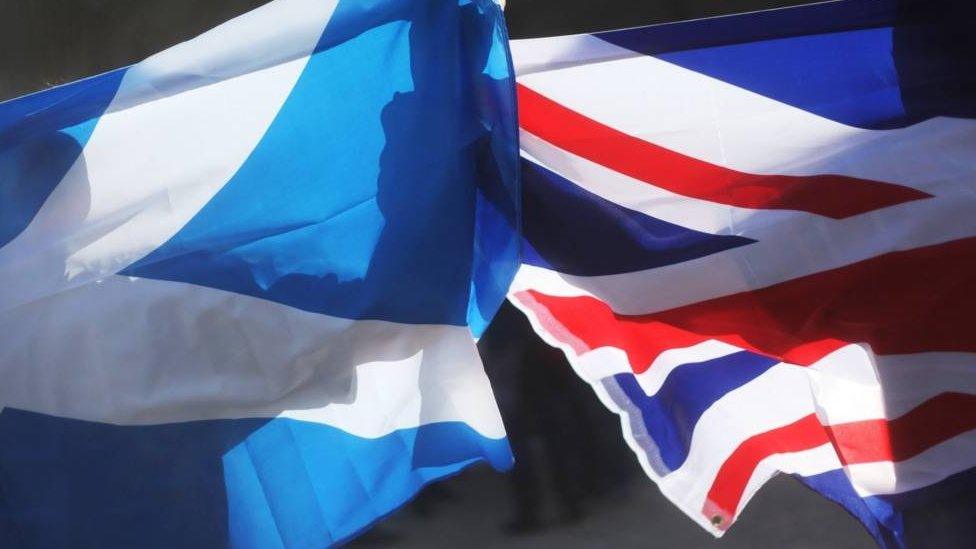Schools in Scotland close again as teachers strike over pay
- Published
- comments

Scottish schools will be closing again this week as Teachers walk out over pay
Teachers in Scotland are going on strike this week as part of a protest to demand higher pay.
It follows a rejection of pay increases offered by the government that teachers groups believe to be unfair and too low.
Primary school teachers walked out on Tuesday, with secondary school teachers following suit on Wednesday. Almost all schools across Scotland are expected to close over the course of those two days as a result.
Pupils are being told to follow the advice given to them by their school about attendance, and some councils are saying that pupils will be able to access learning materials online.
Will schools be closed?
These pupils have their say on the Scottish teacher strikes
Talks between teachers representatives, the Scottish government and the group that sets teachers pay to try and avoid strikes on Monday failed to reach and agreement.
The Educational Institute of Scotland (EIS) said it was still hoping for a deal before more strikes go ahead next week.
The strikes are set to close almost every school in Scotland.
If your school is being affected by the strikes, let us know in the comments.
Strike: refusing to work, usually to convince their employers to make changes
Union: a group formed of people with a common interest to discuss issues important to them - so a teaching union is a group of teachers, and they work together to improve working conditions
Why are the Scottish school strikes happening?

Teachers protested outside of the Scottish parliament during November's walk out
In November, Scottish teaching unions walked out of schools in the biggest strike in more than ten years.
Nearly every primary and secondary school in the country had to close, as well as many nurseries.
A smaller strike also took place in December.
Teachers say they made this protest because they wanted the government to pay them more - at a time where the cost of living is rising rapidly, they said they needed their wages to reflect this.
The Scottish government had offered them a pay rise of 5% to begin with, then 6.85% for the lowest paid. However, with inflation at over 10%, the unions said this didn't go far enough.

Teachers are asking for a 10% pay rise, in line with the current rates of inflation
Scottish Education Secretary Shirley-Anne Somerville said their demands for a bigger pay rise than what had currently been offered were "unaffordable".
What are the different sides involved in the school strikes saying ?
The Scottish Education Secretary said that the talks being held have been "constructive and helpful".
She said: "We are open to considering options to resolve this dispute... I recognise that any deal must be fair and affordable for all concerned."

Talks are taking place to try and avoid further strike action
She said she hoped that teaching unions would reconsider striking while talks are ongoing: "Strikes in our schools are in no one's interest - including for pupils, parents and carers who have already had to deal with significant disruption over the past three years."
However, Scotland's biggest teaching union, the EIS, has dismissed the current offer on the table as "insulting".
And NASUWT said the argument would only end when a "substantially improved pay offer" was offered to teachers.
Cost of living: the price of things around the world and how much money people have to spend on the things that they need - like food, fuel and family life
Inflation: when the prices of things go up, so you can buy less with the money you have
Are teachers striking anywhere else in the UK?
Not at the moment - these strikes will only be in Scotland.
However, votes are being held by teaching unions in other parts of the UK, to decide whether or not they will also strike over pay.
Teachers from five unions in Northern Ireland are taking different kinds of action rather than striking, which are affecting meeting attendance and admin tasks.
- Published26 August 2022

- Published15 November 2023

- Published23 November 2022

